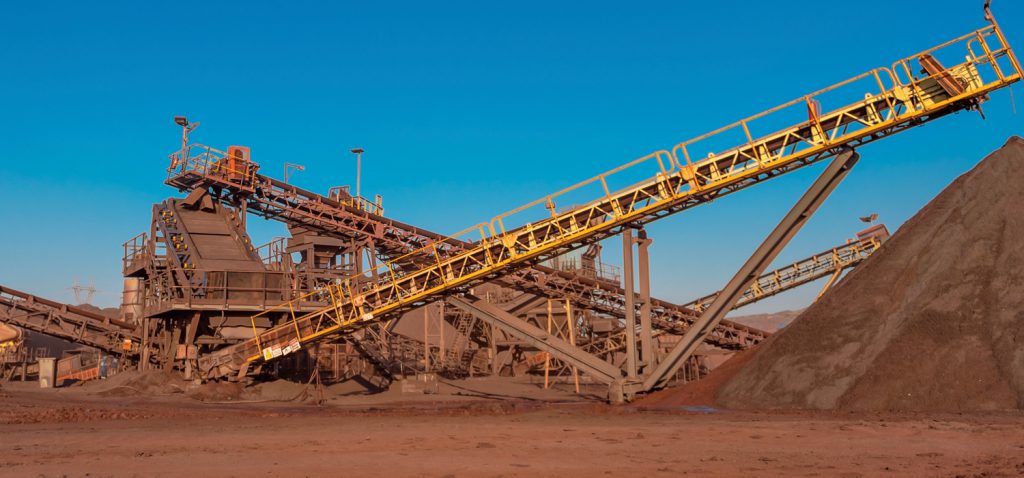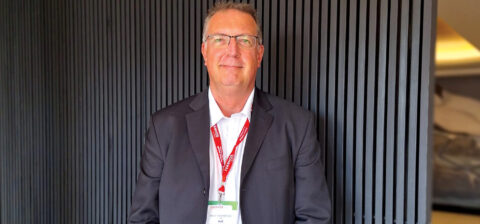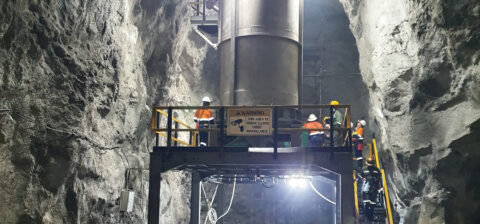SA Mining
Iron Ore Aspirations: Afrimat Bucks The Trend
By: Nelendhre Moodley
Aside from hoping to ink an industrial minerals acquisition in the next few months, the miner is also evaluating potential iron ore opportunities aimed at supplementing its existing iron ore portfolio.
According to Afrimat, which produces 72 500 tonnes of iron ore per month, its iron ore portfolio has proved to be highly lucrative for the diversified miner.
As such, it is keen to increase production and extend the current life of its star performer, the Demaneng iron ore mine located in the Northern Cape.
Demaneng, purchased three years ago, was resuscitated following its acquisition as an entity in business rescue.
“We are looking to acquire more iron ore deposits in the area around the Demaneng project in order to bolster the life of mine to beyond 20 years. When we acquired the operation, it had a life of mine of just five years – we have since doubled the life of mine and are now looking at increasing it beyond 20 years,” Van Heerden says of the Northern Cape asset – an area which hosts “among the highest iron ore grades and low levels of contaminants in the country”.
Van Heerden was confident that the company would finalise an iron ore acquisition by early 2020.
Afrimat’s well-diversified portfolio consists of industrial materials, construction materials and its best performer, bulk commodities, which lifted the segments revenue stream by 77.5%, following favourable pricing and an increase in iron ore volumes, Van Heerden said at the presentation of the company’s financial results for six months ended 31 August 2019.
“The bulk commodities business contributed 30% to overall revenue and 43% to operating profit. We have achieved this by actively seeking out available opportunities and acting speedily on them. This includes being on hand to take up any additional capacity on the Saldanha rail line whenever it was available.”
Efficiency is key
Coupled with the JSE-listed entities appetite for robust growth is its dedication to continuous improvement. Efforts towards efficiency improvements include fine-tuning the business, implementing a “really good information system to identify key performance indicators” and pinpointing the root causes hampering business progress.
“We run the business ultra-efficiently and remain focused on continuous plant and equipment maintenance to ensure reliability,” says Van Heerden.
The company recently invested R36.9m in the development of a fixed crushing plant which will improve the operational efficiency of the processing facility.
Afrimat expected to commission the crushing plant by February 2020, following which it hopes to reduce costs. While not significant, it would help in bringing down overall costs.
“Other interventions include keeping a close eye on and analysing the market to ensure that we make the most of opportunities presented, including targeting opportunities from the development of the multibillion-dollar Rovuma liquefied natural gas (LNG) project being developed jointly by Exxon Mobil and Italy’s oil and gas company Eni in Mozambique.”
Afrimat entered the Mozambican market about four years ago and is well positioned to supply construction materials for infrastructure development ahead of the Rovuma LNG project construction.
“We have a quarry that is close to the project and we have established a brick- and block-making factory to service the LNG project as it develops. Afrimat has received a few orders to undertake peripheral work ahead of project development.”
Training and skills development
“We are building this business based on excellence and integrity which is underpinned by the need for competent people that have been properly trained and developed.”
According to Van Heerden, Afrimat offers three categories of training:
- Basic skills development (adult education, operator training, etc.).
- Career-centred training – which includes artisan training (fitters, boilermakers, electricians, etc.) and internship programmes (a two-year programme aimed at offering youngsters from tertiary institutions workplace experience).
- Internal leadership programmes for career development aimed at both senior management and junior management staff, including MBA degrees and sponsorship to attend programmes at international institutions, among others.
“Afrimat’s weekly business performance review offers it feedback and insight into how the organisation and its people are performing, including highlighting aspects that should be changed or amended,” says Van Heerden.
Over the past five years, Afrimat undertook 17 000 training and skills development interventions for its 2 500 employees.
“On average, every individual has undertaken between two and three training interventions in the past five years. We also ensure that the culture of entrepreneurship is nurtured and that employees remain highly motivated. To achieve this, team leaders flag problems early so as to ensure that suitable interventions are undertaken.”







 Sign-up and receive the Business Media MAGS newsletter OR SA Mining newsletter straight to your inbox.
Sign-up and receive the Business Media MAGS newsletter OR SA Mining newsletter straight to your inbox.